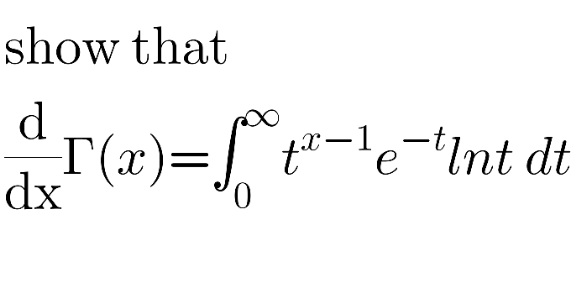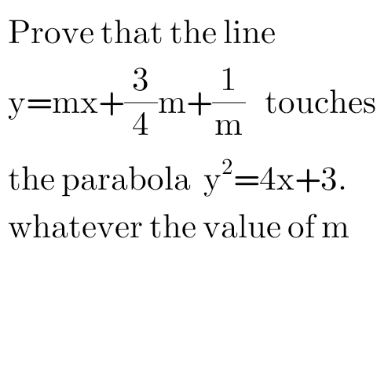
AllQuestion and Answers: Page 1006
Question Number 120036 Answers: 1 Comments: 0

Question Number 120035 Answers: 1 Comments: 0

Question Number 120029 Answers: 0 Comments: 2
Question Number 120028 Answers: 2 Comments: 0

Question Number 120025 Answers: 2 Comments: 0
Question Number 120016 Answers: 2 Comments: 0

Question Number 120008 Answers: 2 Comments: 2

Question Number 120006 Answers: 0 Comments: 0

Question Number 119997 Answers: 4 Comments: 0
Question Number 119996 Answers: 1 Comments: 0
Question Number 119989 Answers: 2 Comments: 0

Question Number 119979 Answers: 3 Comments: 1

Question Number 119977 Answers: 2 Comments: 0
Question Number 119970 Answers: 3 Comments: 0
$$\:\int\:\frac{{dx}}{{x}^{\mathrm{2}} \sqrt{\mathrm{25}−{x}^{\mathrm{2}} }}\:? \\ $$
Question Number 119969 Answers: 1 Comments: 0

Question Number 119965 Answers: 1 Comments: 0

Question Number 119961 Answers: 3 Comments: 0
Question Number 119960 Answers: 1 Comments: 0

Question Number 119956 Answers: 2 Comments: 0
Question Number 119939 Answers: 3 Comments: 0

Question Number 119937 Answers: 3 Comments: 0
Question Number 119934 Answers: 2 Comments: 0
Question Number 119933 Answers: 4 Comments: 0
Question Number 119930 Answers: 1 Comments: 0

Question Number 119928 Answers: 2 Comments: 0

Question Number 119922 Answers: 0 Comments: 0

Pg 1001 Pg 1002 Pg 1003 Pg 1004 Pg 1005 Pg 1006 Pg 1007 Pg 1008 Pg 1009 Pg 1010
